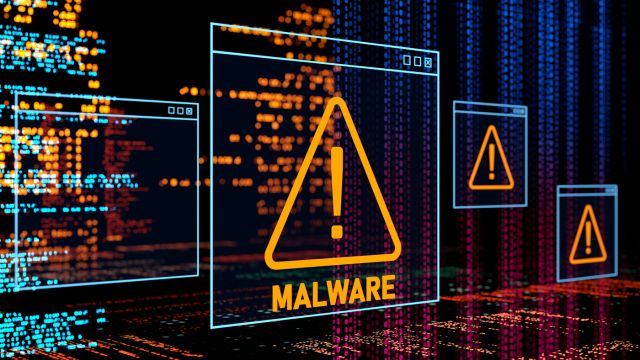ISO 27701: Turning Privacy Compliance from a Cost Center into a Competitive Weapon

Published: 26 September 2025
For many organizations, the word “compliance” triggers images of complex spreadsheets, endless audits, and significant, often grudging, financial investment. Regulations like GDPR and CCPA have turned privacy into a mandatory checkbox, a cost center that leaders feel they must endure to avoid fines. But this defensive, reactive posture misses a massive strategic opportunity. What if privacy compliance wasn’t just about avoiding penalties? What if it could be your most potent competitive weapon?
This is the paradigm shift offered by ISO 27701. As an extension to the well-known ISO 27001 information security standard, ISO 27701 provides a formal framework for establishing, maintaining, and continually improving a Privacy Information Management System (PIMS). By integrating your privacy and security operations, you move beyond simply claiming you protect data to proving it through a globally recognized, auditable standard. This verifiable proof of commitment is a powerful differentiator in a market increasingly wary of privacy missteps.
From Shield to Sword: The Strategic Advantage of Verifiable Privacy
In the world of enterprise sales, trust is the ultimate currency. A prospective client’s security and legal teams will subject your organization to intense scrutiny. Their due diligence questionnaires are extensive, their concerns are valid, and their goal is to minimize their own risk. This is where ISO 27701 certification changes the game.
Imagine two scenarios:
- Scenario A (Without ISO 27701): You answer hundreds of questions with lengthy, bespoke explanations. You provide your internal policies and try to convince the client that your processes are robust. This is a time-consuming, friction-filled process for both sales and engineering teams, often delaying deals by weeks or even months.
- Scenario B (With ISO 27701): You present your ISO 27701 certificate. This single document pre-emptively answers the vast majority of their questions. It serves as third-party validation that your organization has a comprehensive, operationalized privacy management system that is integrated with your information security controls.
The certificate acts as a universal passport for trust. It immediately signals a level of maturity and commitment that builds confidence, dramatically shortens sales cycles, and removes significant friction from the procurement process. You are no longer just making promises; you are presenting evidence.
Integrating Security (ISO 27001) and Privacy (ISO 27701)
The power of ISO 27701 lies in its direct link to ISO 27001. It isn’t a standalone framework but an extension, meaning you can’t have 27701 without 27001. This integration is critical and reflects a modern understanding of data governance: you cannot have data privacy without robust data security.
- Unified Management System: By building your PIMS on the foundation of your existing Information Security Management System (ISMS), you create a single, unified framework for managing risk. This is far more efficient than running two parallel compliance programs. Security controls like access management and incident response are naturally extended to cover Personally Identifiable Information (PII).
- Clearer Roles and Responsibilities: The integrated approach forces clarity on who is responsible for what. It establishes clear lines of ownership for protecting PII, from the data processors handling the information to the data controllers setting the policies.
- Continuous Improvement: Both standards are built on the Plan-Do-Check-Act (PDCA) model, embedding a culture of continuous improvement into your security and privacy operations. This ensures your defenses evolve alongside the threat landscape and changing regulations.
The Business Case: Tangible ROI on Compliance Investment
Viewing ISO 27701 as a strategic investment rather than a cost reveals several clear pathways to a strong return on investment.
- Accelerated Sales Cycles: As discussed, reducing the friction in security and privacy reviews can be the difference between winning and losing a competitive enterprise deal. The time your team saves can be reinvested in innovation and growth.
- Enhanced Brand Reputation and Trust: In an age of frequent, highly public data breaches, a commitment to verifiable privacy is a powerful brand asset. It tells your customers, partners, and the market that you are a responsible steward of their data.
- Simplified Global Compliance: ISO 27701 provides an excellent framework for mapping to various global privacy regulations, including GDPR. While not a substitute for legal compliance, it provides the operational controls to support it, making it easier to adapt to new regulations as they emerge.
- Improved Internal Processes: The rigor of implementing a PIMS often exposes and helps correct inefficient or insecure data handling practices that have long gone unnoticed, leading to better internal data governance and reduced operational risk.
In today’s data-driven economy, privacy is not a feature; it is a fundamental expectation. Leading organizations understand this and are moving beyond a defensive, cost-based approach to compliance. They are using frameworks like ISO 27701 to build trust, accelerate growth, and turn their commitment to privacy into a formidable competitive advantage.
Is your business ready to turn compliance into a competitive weapon? At Aqon, we specialize in helping organizations navigate the complexities of ISO 27001 and ISO 27701. We can guide you through the process of building an integrated management system that not only ensures compliance but also drives business value.
Contact us today to learn how we can help you build a foundation of verifiable trust.
Next Up: Beyond the Chatbot: Real-World Enterprise Use Cases for Generative AI
Latest Articles



